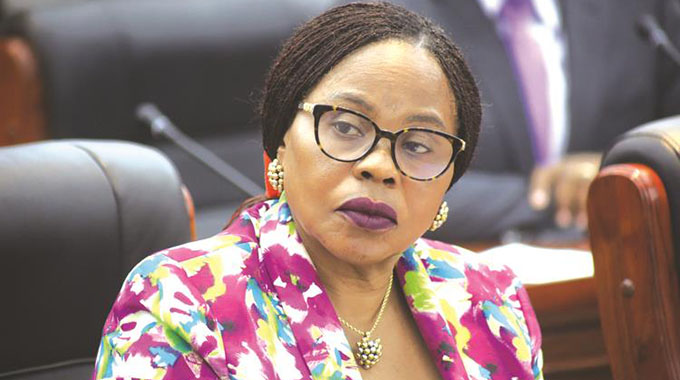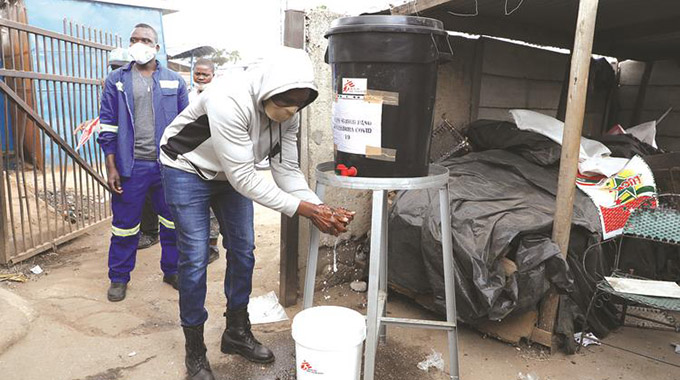Schools to get transport on reopening

Herald Reporter
Suitable transport arrangements are being made for when schools reopen, both for travel between and within cities, a Cabinet minister has said.
This comes as another four Covid-19 patients tested positive yesterday, bringing the total to 387. All four, like almost all cases, were returning residents from South Africa in formal quarantine.
But the Government is continuing to prepare, procuring more drugs and equipment with the bulk of the products now being locally manufactured.
Information, Publicity and Broadcasting Services Minister, Monica Mutsvangwa last night gave details of progress after a national taskforce meeting held at State House.
“In order to cater for the re-opening of schools, which will see learners, teaching and non-teaching staff commuting to and from schools, the Ministry of Transport and Infrastructure Development is developing guidelines that will assist schools in their preparations for operation as well as inter-city passenger transport services,” said Minister Mutsvangwa.
She said a standard operating procedure in schools under Covid-19 had been circulated to all schools for them to input before the document is finalised.
Minister Mutsvangwa said the national taskforce got an update on the distribution of Covid-19 essentials made to all the Provincial and district medical centres over the past week.
“These essentials included personal protective equipment such as aprons, face masks and theatre gowns; supplies for the screening of Covid-19 such as infrared thermometers and disinfection materials such as knapsack sprayers. There has been no need for medications and drugs used to treat Covid-19 patients thus far, however, our medical facilities have to be ready to administer treatment to severe and critical Covid-19 cases,” said Minister Mutsvangwa.
“This past week, drugs that were identified in the treatment of Covid-19, Hydroxychloroquine, which was locally produced, and Alpha Interferon, which was sourced from Cuba, were distributed to provincial and central hospitals. Another primary drug, which is used in treating symptoms through lowering fevers and pain, paracetamol, is being locally manufactured. I am pleased to announce that the nation now has the following stocks of pharmaceuticals: 20 million paracetamol tablets, 20 000 paracetamol syrup, 755 000 Vitamin C and 420 000 chloroquine tablets.”
A subcommittee on materials inspected some manufactures of personal protective equipment last week and noted local companies were producing a variety of such equipment.
“Stocks of locally produced personal protective equipment and other Covid-19 essentials are increasing and this enhances the country’s ability to combat the virus. The report mentioned that we have a company that is daily producing 4000 hospital gowns, 2500 scrubs and 6000 facial masks using waterproof cotton fabric,” she said.
It was noted that tertiary institutions had so far produced 459 295 litres of hand sanitisers with current stocks pegged at 92 977 litres. They have also produced 367 769 masks to date and currently hold stocks of 70 861.
“Government commends efforts by local companies and tertiary institutions, a national response through using mostly local resources shows that we are refocusing, recalibrating and revamping to life under Covid-)19,” she said.
Health and Child Care Minister Obadiah Moyo said Government had taken a deliberate approach to concentrate available resources to test those in quarantine centres following complaints of delays.
“The complaints centred on delays in testing the returnees and where tests had been done, results were taking longer than expected to be delivered to rightful recipients. With effect from last week, Government took a deliberate approach to concentrate available resources to testing people in quarantine centres so as to alleviate challenges being faced by our people,” said Dr Moyo.
Covid-19 Chief Coordinator in the Office of the President and Cabinet Dr Agness Mahomva said Government came up with guidelines that will harmonise operations and practices to be applied in the quarantine centres.
“We have heard, we have listened from those who have been in facilities complaining. We took note and put that document together with all stakeholders. We also took note about the challenges that we got from those from quarantine. This document will take every aspect of management of individuals to ensure that we are sticking to the same thing throughout Zimbabwe,” said Dr Mahomva.










Comments